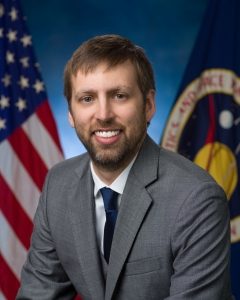Our Most Persuasive Apologetic
Does God exist?
This is the ultimate question. Its answer is all-important, determining every other belief. Even when the question isn’t stated explicitly, it undergirds all of life. Our choices, our hopes, our purpose, our identity – everything swings in the balance, dependent upon our response to this question.
Although many atheists claim the existence of God has been disproved, there is remarkable evidence for God throughout science, philosophy, archaeology, and history. Every Christian will benefit from some understanding of this evidence as we represent God to the world. In fact, the apostle Peter encouraged the early church to be prepared to answer these significant questions:
Have no fear of them, nor be troubled, but in your hearts honor Christ the Lord as holy, always being prepared to make a defense to anyone who asks you for a reason for the hope that is in you.
– 1 Peter 3:15
What answers do believers have for those who question God’s existence?
There are scientific defenses, including the origin of the universe itself. The discovery of the Big Bang has shown that the universe has a beginning,¹ thus, there must be something beyond the universe that caused it – there must be a First Cause.²
Another common argument is the overwhelming order and intricacy of the universe – from the language of DNA to the laws that govern physics – requiring the work of an Intelligent Designer. There are also philosophical defenses, such as the existence of universal morality throughout human history. In order to ultimately define what is good and true, there must be an Absolute who not only defines but displays true goodness.
There are many other resources providing evidence not only for a god, but for the God of the Bible.
As we engage in an increasingly secular society, we should all seek to be able to clearly articulate the doctrine which we profess. We cannot argue people into trusting Christ, but we can provide cogent and reasonable answers to their questions that open the door to the message of the gospel.
However, the most important apologetic is not found in science, statistics, or philosophy. It’s not an argument or claim; it isn’t words found in a book or lecture. The most important apologetic is us: our character, our love for one another, the autobiography of our lives as disciples of Jesus.
Many people cite 1 Peter 3:15 to encourage Christians to engage in apologetics, but let’s pay attention to the second half of this exhortation.
Yet do it with gentleness and respect, having a good conscience, so that, when you are slandered, those who revile your good behavior in Christ may be put to shame.
– 1 Peter 3:16
The most powerful way to draw someone to Jesus is to love them.
Defend your faith, resting in the reasonableness of Christianity, but remember that this isn’t a debate to be won against an enemy. Each person we encounter is loved by Jesus, and our aim should be to win each one for his kingdom. We must first and foremost love the person before us.
Though the question of God’s existence is everywhere, seekers are also looking for evidence of God’s character.
Who is he?
Can he be trusted?
Is he good?
No matter how valid our arguments or how persuasive our evidence, it will fall on deaf ears if who we are represents God in a way that looks nothing like Jesus. Growing in knowledge of Christianity must always be accompanied by continually being formed into the image of Christ: caring for the poor, walking in humility, becoming a friend to sinners.
When we then present evidence for the defense of our hope, it will not only be with science or statistics, but also through the authentic transformation of our life in Christ. We must engage with our neighbors in such a way that unbelievers want to hear our defense and to know the God we follow.
In a skeptical yet searching world, a reasonable faith and a winsome life can make a way for the truth of the gospel.
¹ Francis S. Collins, The Language of God: A Scientist Presents Evidence for Belief, (New York, NY: Free Press, 2007), 63.






